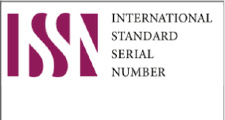The Rising of Political Islam: Ideologies and Movements
Abstract
Political Islam encompasses a diverse array of ideologies and movements that have significantly shaped the socio-political landscape of various regions. This paper explores the multifaceted nature of political Islam, examining its historical roots, ideological underpinnings, and contemporary manifestations. Through an analysis of key concepts, movements, and debates within political Islam, this study aims to provide insights into the complexities and dynamics of this phenomenon. By delving into the diverse ideological strands and socio-political contexts, the paper seeks to contribute to a nuanced understanding of the roles, aspirations, and challenges posed by political Islam in the modern world. The phenomenon of Political Islam has garnered significant attention in recent decades, reshaping political landscapes across regions and challenging conventional understandings of governance, identity, and power. This abstract offers an overview of the book "The Rising of Political Islam: Ideologies and Movements," which delves into the multifaceted dimensions of Political Islam, exploring its ideologies, diverse manifestations, and implications for contemporary politics. Drawing from a rich array of case studies and theoretical frameworks, the book examines the ideological underpinnings of Political Islam, tracing its historical roots and ideological evolution. It explores how concepts such as Sharia law, Islamic governance, and the ummah shape the political agendas of Islamist movements and parties. Furthermore, it investigates the complex interplay between religion, culture, and politics in shaping Islamist discourse and mobilization strategies. The book also provides a comprehensive analysis of various Islamist movements and organizations operating in different contexts, ranging from mainstream political parties to militant groups. It sheds light on the strategies employed by these movements to gain popular support, challenge existing power structures, and navigate the complexities of modern governance. Additionally, it examines the role of external actors, including states and transnational networks, in shaping the trajectory of Political Islam within and beyond national borders. Moreover, the book critically assesses the impact of Political Islam on democracy, human rights, and social cohesion, exploring both its potential for pluralism and its tendencies towards authoritarianism and exclusion. It examines case studies of Islamist participation in governance, highlighting the challenges and opportunities encountered in navigating the dynamics of power-sharing, state-building, and socio-economic development. (Eksterowicz, 2004)
Downloads
References
Aarts, P. &. (2005). Saudi Arabia in the Balance: Political Economy, Society, Foreign Affairs. C. Hurst & Co. Publishers.
Aarts, P. &. (2005). Saudi Arabia in the Balance: Political Economy, Society, Foreign Affairs. C. Hurst & Co. Publishers.
Ahmed, A. S. (2015). The Thistle and the Drone: How America's War on Terror Became a Global War on Tribal Islam. Brookings Institution Press.
Bayat, A. (2013). Life as Politics: How Ordinary People Change the Middle East. Stanford University Press.
Brown, N. J. (2007). Contending Visions of the Middle East: The History and Politics of Orientalism. Cambridge University Press.
Hroub, K. (2006). Hamas: Political Thought and Practice. Institute of Palestine Studies.
Hunter, S. T. (2002). Islam, Europe's Second Religion: The New Social, Cultural, and Political Landscape. Greenwood Publishing Group.
Juergensmeyer, M. (2004). Terror in the Mind of God: The Global Rise of Religious Violence. University of California Press.
Kepel, G. (2002). Jihad: The Trail of Political Islam. I.B. Tauris.
Lapidus, I. M. (2014). A History of Islamic Societies. Cambridge University Press.
Naji, A. (2006). The Management of Savagery: The Most Critical Stage Through Which the Umma Will Pass. John M. Olin Institute for Strategic Studies.
Nasr, V. (2006). The Shia Revival: How Conflicts within Islam Will Shape the Future. W.W. Norton & Company.
Rahnema, A. (1994). An Islamic Utopian: A Political Biography of Ali Shariati. I.B. Tauris.
Saikal, A. (2003). Islam and the West: Conflict or Cooperation? Palgrave Macmillan.
Sivan, E. (1990). Radical Islam: Medieval Theology and Modern Politics. Yale University Press.
Tibi, B. (2008). Political Islam, World Politics and Europe: From Jihadist to Institutional Islamism. Routledge.
Wickham, C. R. (2002). Mobilizing Islam: Religion, activism, and political change in Egypt. Columbia University Press.
Wiktorowicz, Q. (2004). Anatomy of the Salafi Movement. Studies in Conflict & Terrorism, 27(5), 355-373.






















